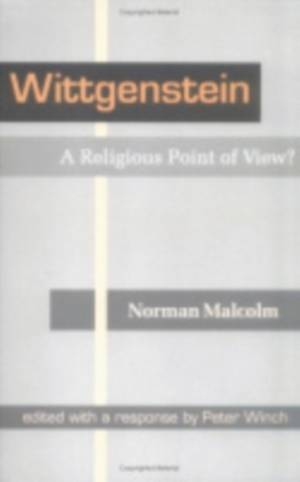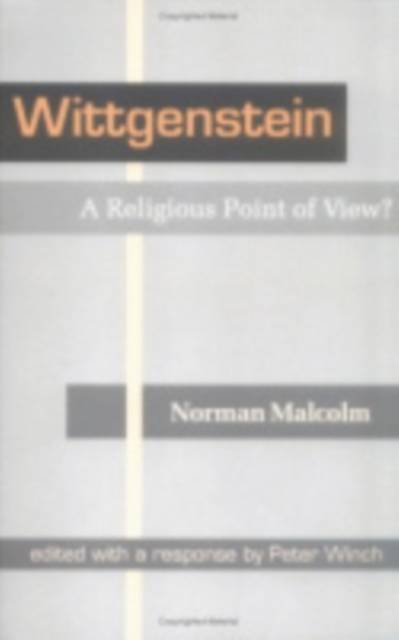
Bedankt voor het vertrouwen het afgelopen jaar! Om jou te bedanken bieden we GRATIS verzending (in België) aan op alles gedurende de hele maand januari.
- Afhalen na 1 uur in een winkel met voorraad
- In januari gratis thuislevering in België
- Ruim aanbod met 7 miljoen producten
Bedankt voor het vertrouwen het afgelopen jaar! Om jou te bedanken bieden we GRATIS verzending (in België) aan op alles gedurende de hele maand januari.
- Afhalen na 1 uur in een winkel met voorraad
- In januari gratis thuislevering in België
- Ruim aanbod met 7 miljoen producten
Zoeken
€ 66,45
+ 132 punten
Uitvoering
Omschrijving
Ludwig Wittgenstein once said to a friend, "I am not a religious man: but I cannot help seeing every problem from a religious point of view." This puzzling, but intriguing remark is the focus of Norman Malcolm's essay, which forms the centerpiece of this three-part work. Malcolm first draws together a large and illuminating collection of remarks made by Wittgenstein at various stages of his life and in many different contexts that express his attitude toward religion. He discusses some of the ways in which Wittgenstein was drawn to religious modes of thinking and speculates concerning the barriers which kept him from full religious commitment. With great vigor he discusses what be considers the most important features of Wittgenstein's philosophical work and the nature of and reasons for the changes which took place in his thinking between Tractatus Logico-Philosophicus and Philosophical Investigation. He concludes by offering four analogies between Wittgenstein's philosophical methods and his religions attitudes generally. Peter Winch, who opens the volume with an introduction that places Malcolm's essay in the context of his other writings, concludes with a substantial critique of the proposed analogies and suggests an alternative reading of the "spiritual" dimension in Wittgenstein's inquiries.
Specificaties
Betrokkenen
- Auteur(s):
- Uitgeverij:
Inhoud
- Aantal bladzijden:
- 152
- Taal:
- Engels
Eigenschappen
- Productcode (EAN):
- 9780801482663
- Verschijningsdatum:
- 3/01/1995
- Uitvoering:
- Paperback
- Formaat:
- Trade paperback (VS)
- Afmetingen:
- 141 mm x 216 mm
- Gewicht:
- 204 g

Alleen bij Standaard Boekhandel
+ 132 punten op je klantenkaart van Standaard Boekhandel
Beoordelingen
We publiceren alleen reviews die voldoen aan de voorwaarden voor reviews. Bekijk onze voorwaarden voor reviews.









